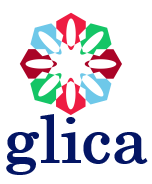Cancer and Aging Institute Members

Dr. Lucile Adams-Campbell, PhD, Department of Oncology
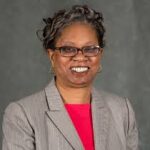
Cancer Health Disparities, Cancer Prevention and Control, Epidemiology, Global Oncology. Dr. Lucile Adams-Campbell’s research focuses on minority aging over the life course and how aging and cancer interact to affect cancer disparities and the health of older minority cancer survivors.
Jaeil Ahn, PhD, Department of Biostatistics, Bioinformatics and Biomathematics
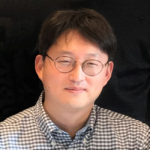
Bioinformatics, Biostatistics, Genetic Epidemiology, Glycoscience. Dr. Ahn’s research explores cognitive aging of breast cancer survivors, clinical trials and machine learning to evaluate aging outcomes.
Hannah Arem, PhD, Department of Oncology
Implementation Science, Behavioral Interventions, Cancer Disparities, Social Determinants of Health. Dr. Arem’s research focuses on testing dissemination and implementation of interventions to improve care for older adults and the intersection of aging, disparities, and cancer on improving patient reported outcomes.
Traci Bethea, PhD, Department of Oncology
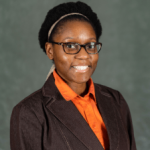
Health Disparities, Cancer Prevention and Control. Dr. Bethea’s research focuses on environmental stressors underlying cancer health disparities and minority aging, and how sleep interventions can improve outcomes.
Marc Blackmann, MD, Department of Medicine
Endocrinology, Diabetes, Sarcopenia, Traumatic Brain Injury. Dr. Blackman’s research interests include endocrine and metabolic changes that occur in aging individuals and those with age-related sarcopenia and traumatic brain injury.
Jan Blancato, PhD, Department of Oncology
Breast Cancer, Neurology and CNS Cancer. Dr. Blancato’s research interests include neurodegenerative diseases of aging, biomarkers in breast cancer and discovering pathogenic genomic variants in different diseases.
Jessica Chiang, PhD, Department of Psychology
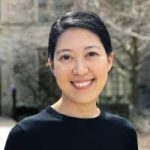
Health Psychology, Stress, Early Adversity, Adolescence. Dr. Chiang’s research focuses on stress, early life adversity, daily experiences, health, psychoneuroimmunology, biological and behavioral pathways, protective factors and adolescence.
Chiranjeev Dash, PhD, Department of Oncology
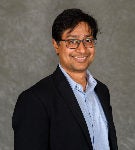
Cancer Biomarkers, Cancer Disparities, Epidemiology, Training. Dr. Dash’s research primarily focuses on molecular epidemiology and cancer prevention and control in minorities and underserved populations.
Tamar Demby, PhD
Neurosciences, Clinical Translation of Animal Model Experiments, Cancer and Aging. Dr. Demby’s research interests are to use animal models to inform clinical care at the intersection of aging and cancer and advance understanding of mechanisms that can be leveraged to improve quality of life.
Heather Derry-Vick, PhD, Hackensack University Medical Center
Biobehavioral Research, Quality of Life. Dr. Derry-Vick examines how psychosocial factors interact with health conditions to impact health and healthcare experiences and how physiological mechanisms raise risk for cancer and co-occurring health problems.
Priscilla Furth, MD, Department of Oncology
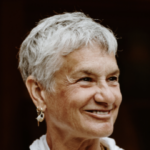
Breast Cancer, Cancer Genetics, Cancer Survivorship, Faculty Development. Dr. Furth’s research focuses on breast cancer pathophysiology with applicability to aging, and has recently expanded to include research on the impact of physical activity on aging within cancer survivorship.
Radoslav Goldman, PhD, Department of Biochemistry and Molecular and Cellular Biology
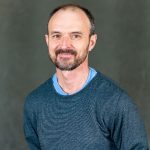
Glycoscience and Glycoproteins, Translational Cancer Research, Head and Neck Cancer (HNSCC), Liver Fibrosis, Hepatocellular Carcinoma. Dr. Goldman explores the impact of glycoscience on human pathophysiology, and how glycosylation affects aging processes and cancer outcomes.
Carole Gresenz, PhD, School of Nursing and Health Studies

Health Economics, Labor Economics. Dr. Gresenz’s research examines how Alzheimer’s Disease affects the financial well-being of individuals and families during its early stages, the effects of aggressive versus conservative treatment of low-risk prostate cancer on mortality, and adverse side effects and episode treatment costs after controlling non-random selection into treatment.
Pamela Herd, PhD, McCourt School of Public Policy

Health Policy, Aging, Disparities. Dr. Herd’s research focuses on inequality and how it intersects with health, aging, and policy.
Sean Huang, PhD, Health Systems Administration Academic Department
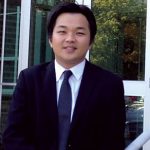
Health Economics, Healthcare Finance, Healthcare Markets, Long-Term Care. Dr. Huang’s research focuses on the management and regulation of health care providers, including hospitals, nursing homes, and home health agencies, as well as financial issues in cancer and aging.
Barry Hudson, PhD, Department of Oncology

Breast Cancer, Diabetes, Inflammation, Obesity. Dr. Hudson is interested in the role that inflammatory mechanisms play in breast cancer progression and metastasis, such as the Receptor for Advanced Glycation End-products (RAGE) and its ligands (AGEs, S100s and HMGB1) in diabetes, obesity and breast cancer.
Alejandra Hurtado de Mendoza, PhD, Department of Oncology
Cancer Disparities, Translational Genomics, Qualitative Research, Behavioral Interventions, Cancer Health Disparities. Dr. Hurtado de Mendoza’s work focuses on developing culturally targeted interventions to reduce cancer disparities in at-risk Latina and African American women, including older minority women.
Claudine Isaacs, MD, Department of Oncology
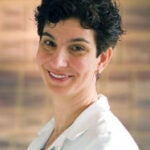
Breast Cancer, Cancer Genetics. Dr. Issacs’ research experience includes the conduct of clinical trials in all aspects of breast cancer, cancer risk assessment, and medical management and prevention strategies for women at high risk for breast cancer.
Jinani Jayasekera, PhD, Department of Oncology

Health Services Research, Simulation Modeling, Cancer Health Disparities, Health Economics, Clinical Decision Tools. Dr. Jayasekera has led several collaborative simulation modeling projects focused on cancer disparities, health policy, and personalized care based on age and health, and is focusing on developing a simulation model to address knowledge gaps in the use of genomic-guided treatment in older women.
Catherine Lai, MD, Department of Oncology

Hematology, Leukemia. Dr. Lai’s research focuses on novel therapeutics, designing and conducting clinical trials, and health outcomes for leukemia patients.
Marc Lippman, MD, Department of Oncology
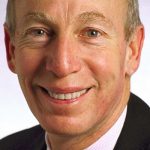
Breast Cancer, Tumor Biology, Inflammation. Dr. Lippman and his team continue studying how RAGE signaling contributes to breast cancer progression and evaluate the efficacy of RAGE inhibitors combined with other therapy.
Peter McGarvey, PhD, Department of Biochemistry and Molecular & Cellular Biology

Molecular Biology, Biotechnology, Bioinformatics, Software Development. Dr. McGarvey assists Scholars interested in using electronic health record data, obtaining training to use artificial intelligence and machine learning techniques in aging research and working with other large data.
Caleb McKinney, PhD, Department of Rehabilitation Medicine
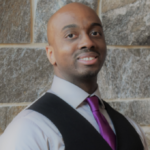
Outreach, Artificial Intelligence. Dr. McKinney manages outreach and workforce development initiatives, including use of electronic health records for disparities research and training diverse scientists to use artificial intelligence and machine learning techniques in their research.
Arnold Potosky, PhD, Department of Oncology
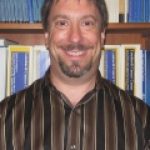
Cancer Survivorship, Health Services Research, Clinical Epidemiology. Dr. Potosky conducts health services research describing the impact of cancer treatments on symptoms, function and quality of life, and uses this experience to study delivery of care to older minority survivors.
Bill Rebeck, PhD, Department of Neuroscience
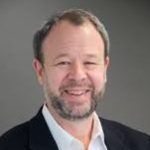
Alzheimer’s Disease, Apolipoprotein E, Chemotherapy-induced Cognitive Impairment. The Rebeck lab focuses on the effects of APOE genotype in Alzheimer’s disease and links to cognitive aging after cancer therapy.
Rebecca Riggins, PhD, Department of Oncology
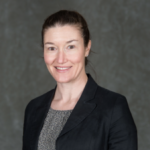
Breast Cancer, Cancer Biology, Cell Signaling, Training, Orphan Nuclear Receptors. Dr. Riggins’ research focus lies in the study of cancer therapy efficacy and resistance using diverse cellular and molecular approaches, predominantly in hormone receptor-positive breast cancer and applying these methods to understand aging and mentorship training.
Michelle Roett, MD, Department of Family Medicine
Children and Family, Community Engagement, Faculty Development, Family Medicine, Health Disparities. Dr. Roett’s interests focus on implementation of integrated behavioral health and primary care, using innovative video feedback and standardized patient teaching modalities to improve doctor-patient communication and teaching community-oriented primary care.
Pamela Saunders, PhD, Departments of Neurology and Psychiatry
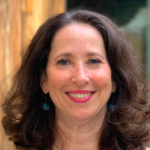
Linguistics, Medical Education, Aging. Dr. Saunders’ research focuses on language, aging, doctor/patient communication, narrative and reflective writing, and standardized patient education.
Richard Schlegel, MD, PhD, Department of Pathology
Aging, Cell Immortalization, Virology. Dr. Schlegel’s research focuses on papillomaviruses and their role in human cancer, and use of lab techniques to study cell aging, immortalization and HPV-related cancers.
Ken Tercyak, PhD, Cancer Prevention and Control Program
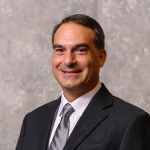
Behavioral Science, Pediatrics, Psychology, Childhood Cancer. Dr. Tercyak conducts survivorship research, social/behavioral epidemiology, and cancer prevention, and studying aging in childhood cancer survivors.
Jason Tilan, PhD, Department of Human Science
Aging, Physiology, Pediatric Cancers. Dr. Tilan studies the role of Neuropeptide Y on pediatric tumors and has also directed a required course in the Aging & Health Master’s program at Georgetown University, Biology of Health & Disease.
Jeffrey Toretsky, MD, Department of Oncology
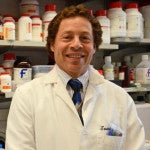
Cancer Physician, Drug Development, Pediatric Oncology, Sarcoma. Dr. Toretsky actively pursues research that will lead to new and more specific therapies of a very rare cancer, Ewing sarcoma.
Raymond Scott Turner, MD, PhD Department of Neurology
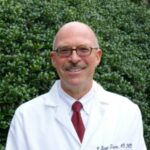
Alzheimer’s Disease, Predictive Biomarkers, Behavioral and Cognitive Neurology, Dementia. Dr. Turner leads clinical care and trials related to development and validation of novel biomarkers for prodromal AD, MCI, and AD; drug discovery for the treatment and prevention of MCI and AD; and interaction of geriatric HIV with AD.
Jason Umans, MD, PhD, Department of Medicine
Cardiovascular Disease, Clinical Pharmacology, Environmental Toxicology, Health Disparities, Nephrology, Pathophysiology. Dr. Uman’s research spans several disciplines, including translational physiology and pharmacology, women’s health, chronic diseases in aging, and community-engaged studies on health disparities and leads mentorship training.
Randi Williams, PhD, Department of Oncology
Behavioral Science, Tobacco Control, Disparities. Dr. Williams is testing methods for smoking cessation in the lung screening setting and to address cancer disparities affecting African Americans.
Yun-Ling Zheng, MD, PhD, Department of Oncology
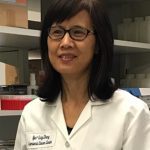
Telomere Measurement, Cancer Epidemiology. Dr. Zheng studies the role of telomere health in aging and cancer and develops biomarkers for the identification of populations at high risk of developing cancer.
